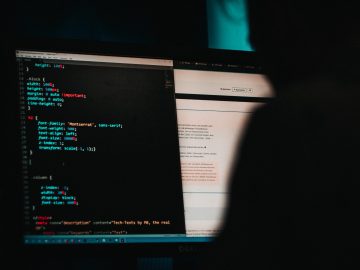New research from health provider Bupa in partnership with ParalympicsGB found that 58% of Brits have felt excluded in the past year, resulting in poor mental health (30%) and isolation (41%). The research also found that feelings of exclusion has made Brits feel shut out in their daily life (28%), at work (27%) or within society (24%). These findings have been released alongside a #TeamHealth campaign to encourage wider access to teams and societies.
Bupa’s research shows that 30% of people have felt a negative impact on their general mental health due to their experience of social exclusion, with many left feeling isolated (41%), sad (41%) and anxious (33%). This research is especially pertinent for people in the cybersecurity industry, given that the stress and pressure of round the clock protection means that free time is often scarce.
The research was conducted by Censuswide among 2,002 UK nationally representative general consumers. Among this group, 417 reported that they consider themselves to have a disability.
Notably, people living with a disability (72%) are more likely to experience exclusion. This group is also almost twice as likely to report poor mental health than the wider population, as well as high levels of loneliness (43%). Women (61%) are also significantly more likely to report feelings of isolation.
Currently 44 per cent of people in the UK aren’t involved in social, professional, community or interests-based support networks, while for one in five (21%), the number of teams they belong to has decreased over the past three years.
For cybersecurity professionals, cultivating a sense of community among professionals may be the first step to improving mental health. Statistics show that two-thirds of cybersecurity professionals feel stressed at work.
Paralympic Gold medallist Richard Whitehead MBE says: “I know from personal experience that feeling excluded is very harmful, both in terms of mental health and preventing people from reaching their potential. And although we’re making progress, it’s not always as easy for disabled people at school, work or in the community, which is why equal opportunities for everyone and feel a sense of belonging is so important.
Those who are part of at least one team or society experience personal, professional and health benefits including feeling happier (30%), more confident (26%) and more likely to achieve their health and fitness goal5. The sense of belonging leads to people feeling more included in society (36%), sociable (35%) and valued (34%).
Whitehead continued: “Being part of a team has been really important for me in reaching my sporting and professional goals. Everyone needs a strong team in their corner, whether in their professional or personal lives, and deserves to feel included”.
Dr Naomi Humber, head of mental wellbeing at Bupa, says: “Being part of a community or team with common interests or goals has a remarkable positive impact on both physical and mental health. Group participation and inclusion promotes a sense of belonging and social connection, creating a supportive environment that encourages healthy behaviours and motivates individuals to achieve their personal, professional and health goals.”
For further information about making the workplace more inclusive for everyone, Holly Foxcroft, Head of Neurodiversity in Cyber Research and Consulting at Stott and May Consulting, provides tips in her latest piece for The Cyber Mindfulness Corner.




